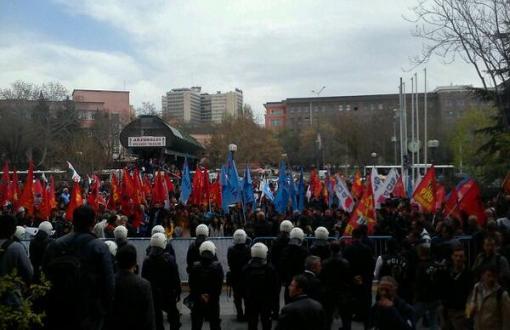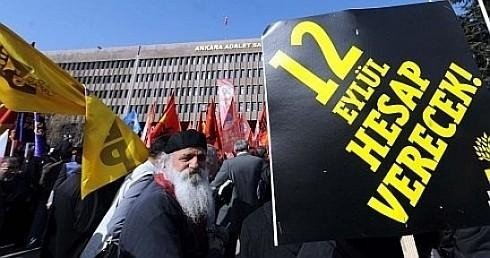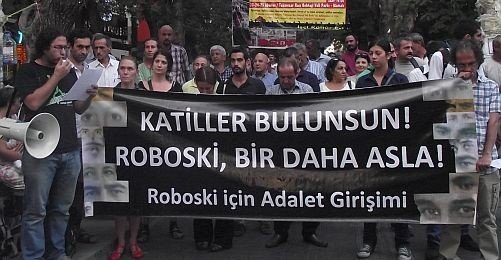The President of the Association for Faculty Members, Prof Tahsin Yeşildere, sharply criticized the disciplinary penalties recently given to students of the Marmara University (Istanbul), the Selçuk University (Konya) and the Pamukkale University. "The Discipline Regulations were made according to the laws of 12 September [1980 military coup]. They are rigid, repressive and based on violence", Yeşildere announced.
Four students of the Konya Selçuk University were expelled from university based on these regulations because they are tried at court. One of them is being detained. Five students of the Pamukkale University were suspended from school for the duration of one month because they protested the Higher Education Council (YÖK) on 6 November.
Marmara University student Mikail Boz was initially suspended from university for one term because of what he wrote about Dean Yusf Devran on the Sour Dictionary website. Later on, his penalty was reduced to the duration of one week.
Yeşildere pointed to YÖK as the root of the problem. According to the academic, YÖK prepared the ground for disciplinary regulations that were based on arbitrary applications of its executives which stemmed from a police mentality. "Who is going to pay for these students' material and moral losses?" Yeşildere questioned.
"The persecution of political offences is not the business of universities"
Bosporus University lecturer Ass. Prof. Koray Çalışkan said that it should be the priority of universities to protect their students but instead they behaved like prosecutors and judges.
"A university punishes a student on the grounds of allegations that have not been proven yet by the prosecutor in an ongoing trial before a civil or criminal court. This is impossible to comprehend. Do the universities have investigators like the prosecutor's office or the police forces so that they can rule for 'membership in an illegal organization' of a student and expel him or her from university" Çalışkan argued.
According to the academic, it is not the business of universities to persecute political offences. It just needed a minimum level of maturity for the university administration to make that distinction, he said.
Çalışkan criticized that universities do not show any good intentions in their decisions related to political issues. "Do universities have the means to examine the crime? Universities cannot investigate whether a political crime was committed or whether somebody is a member of a criminal organization. There are bad intentions involved here".
In dubio pro reo
Regarding the deprivation of students from their right to education by using the YÖK Discipline Regulations as a pretext, Ass. Prof Kerem Altıparmak of the Ankara University Faculty of Political Sciences drew attention to the fact that the discipline regulations were enacted 30 years ago.
"If an investigator determined any membership in a criminal organization before the court has given an according decision, there is no obstacle for a decision regarding discipline. However, the problem is the question how a disciplinary investigator can reach a decision that easily on an issue that is determined by court by the means of a number of various tools?"
Altıparmak continued, "It is a matter of discipline if a student damages the organization of the work field. If the reason for this is the membership in an organization, then the membership is a matter of discipline too. If an organization blocks the school entry and exit for the students, this would be a matter of discipline".
Altıparmak questioned how a university could get through to the actual truth that quickly while courts needed much longer. "Why are the investigations about students not in their favour? If the evidence is insufficient, that person should be acquitted. They give punishments instead". (SK/IC/HK)











